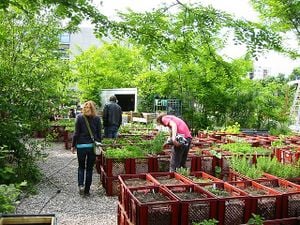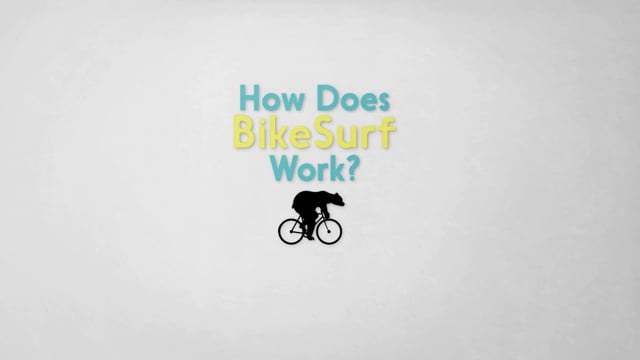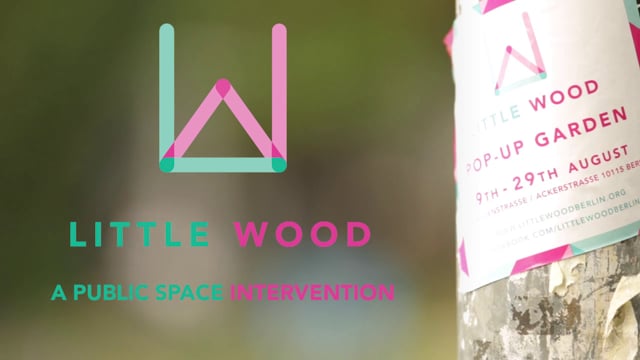
The aim of this page is to recognise, celebrate and encourage the self-empowerment of community agency networks (CANs) and community groups' activism for climate, environment and many other sustainability topics across Malling.
 The "Lebensmittepunkte" - or Berlin's Food Hubs - are a perfect and sustainable fit for the idea of the fifteen-minute city, Daily Alternative (Apr 15, 2024)
The "Lebensmittepunkte" - or Berlin's Food Hubs - are a perfect and sustainable fit for the idea of the fifteen-minute city, Daily Alternative (Apr 15, 2024)  Berliners rave against motorway extension threatening cultural venues, bbc.co.uk (Sep 03, 2023)
Berliners rave against motorway extension threatening cultural venues, bbc.co.uk (Sep 03, 2023)  7 Reasons Why Berlin is a Successful Sharing City, Shareable (Oct 06, 2017)
7 Reasons Why Berlin is a Successful Sharing City, Shareable (Oct 06, 2017)
Networks and sustainability initiatives[edit | edit source]
- ufaFabrik, International Center for Culture and Ecology, Berlin
- Berlin alternatives, by alabaeye, Mapping the alternatives in Berlin, 2nd Open Street Map of Berlin
Food activism[edit | edit source]
- Lebensmittelpunkte Network, Berlin, "an open alliance of local projects, neighborhoods, organizations and committed individuals. Our vision: LebensMittelPunkte in every neighborhood, for an ecological and social transformation of our food system in Berlin." added 07:36, 25 April 2024 (UTC)
Berlin has a tradition of communal neighborhood gardens (Schraebergaerten) stretching back over 150 years. That tradition lives on in projects like the huge Prinzessinengarten (Princess Garden) in the multicultural Kreuzberg district and the Mauergarten (Wall Garden) in the shadow of the Berlin Wall. This list from Foodtank explores many similar projects.[1]
- foodsharing.de (in German) coordinates a network of community food fridges across the country and recruits groups of volunteers to "rescue" food which would otherwise be thrown out from willing shops and producers.[2]
- Prinzessinnengärten (Princess gardens, Berlin)
- Wikipedia (German), Prinzessinnengärten
See also: Urban Foraging in Germany
Community resources[edit | edit source]
- Baumhaus (Treehouse) project space (in German) in the Wedding district is a nonprofit project and event space dedicated to creating a hub for the development of neighborhood sustainable development projects. A repair café, an improvisational orchestra, and a vertical gardening program are just a few of their initiatives.
- Leila Berlin (in German) is a thriving tool library in East Berlin that has spawned several imitators across the country. Their selection goes way beyond household carpentry tools. Need to borrow a bicycle helmet, a drill, or a set of wine glasses? Go see them.[3]
- Little Wood
- Community Lovers Guide Berlin
Arts, sport and culture[edit | edit source]
- New neighbourhood, Moabit, non-profit association founded in 2013. "Today we are one of the largest voluntary neighborhood initiatives in Berlin. With our large rooms and our daily program, we create a social and artistic platform for exchange, learning and engagement for the neighborhood from all over the world. We don't help, we learn from each other. Our goal is to influence society, to actively shape it, to create new opportunities for non-hierarchical political and social coexistence. Our work is voluntary." added 14:56, 15 July 2021 (UTC)
- Cooperative for Urban Creativity
- Kulturlabor Trial & Error Berlin based non profit, working with crafts, D.I.Y. culture, sustainability, arts and media
See also: Community resources
Reduce, reuse, repair and recycle[edit | edit source]
- BerlinRepair, cherish, maintain, pass on, added 15:50, 30 April 2021 (UTC)
Sharing[edit | edit source]
The bustling German capital is an amazing city to visit for all sorts of reasons, but it has a lot to offer for those who are interested in cooperatives, squats, and other local sharing projects.
Köpi is a well-known squat where free alternative movie nights are organized three times a week. Discover new films and enjoy cheap drinks while meeting people and learning more about the Berlin squat scene.[4]
See also: Food activism, Community resources, Maps
Open spaces[edit | edit source]
- gruen-berlin.de, Green infrastructure and public open spaces for Berlin. "We create open spaces and green infrastructures for a more liveable, social Berlin that is barrier-free for all people and at the same time meets its ecological responsibility as a metropolis in the 21st century." added 15:05, 15 July 2021 (UTC)
Cycling activism[edit | edit source]

Cycling in Berlin is a significant form of transport in the German capital where around 500,000 daily bike riders accounted for 13% of total traffic in 2010. The city has a highly developed bicycling infrastructure and it is estimated that Berlin has 710 bicycles per 1000 residents. Among cities with more than one million inhabitants Berlin is a metropolis with one of the highest rates of bicycle commuting in the world.
There are a number of regional and long-distance bike paths that run through Berlin. These include the Berlin-Copenhagen trail, Berlin-Usedom Cycle Route and the European Cycle Route R1. W
In 1997, Berlin-made cycle rickshaws called velotaxis were created. The tickets are about one half the cost of regular taxis. Velotaxis are three-wheeled vehicles with a "space-age lightweight plastic cab that is open on both sides", a space for a driver, and behind the driver, space for two passengers. They have been invented by Ludger Matuszewski, the founder of "Velotaxi GmbH" company. W
- bikesurf.org, bicycle sharing project
Ethical consumerism[edit | edit source]
Original Unverpackt, zero waste store[5]
Sustainable Berlin, information from visitberlin.de
About Berlin[edit | edit source]
Berlin is the capital and largest city of Germany, both by area and by population. Its more than 3.85 million inhabitants make it the European Union's most populous city, as measured by population within city limits. The city is also one of the states of Germany, and is the third smallest state in the country in terms of area. Berlin is surrounded by the state of Brandenburg, and Brandenburg's capital Potsdam is nearby. The urban area of Berlin has a population of over 4.5 million and is therefore the most populous urban area in Germany. The Berlin-Brandenburg capital region has around 6.2 million inhabitants and is Germany's second-largest metropolitan region after the Rhine-Ruhr region, and the sixth-biggest metropolitan region by GDP in the European Union.
Berlin was built along the banks of the Spree river, which flows into the Havel in the western borough of Spandau. The city incorporates lakes in the western and southeastern boroughs, the largest of which is Müggelsee. About one-third of the city's area is composed of forests, parks and gardens, rivers, canals, and lakes.
External links
- Wikitravel: Berlin, Get around
References






